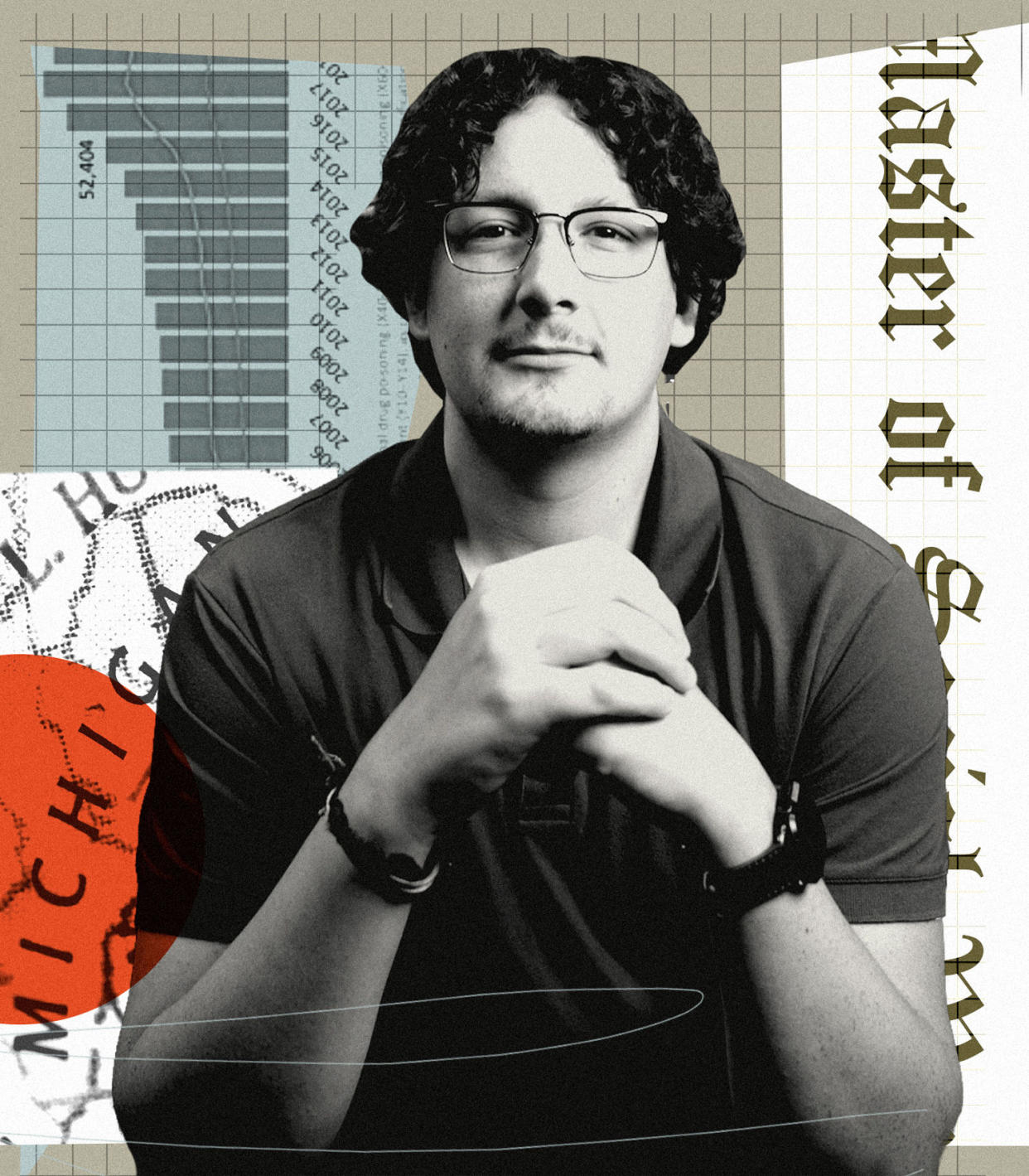Graduating debt-free with a job, this social worker still sees buying a house as out of reach

This is part of NBC News’ Checkbook Chronicles, a series of profiles looking at the financial realities of everyday Americans and the challenges they face.
Austin Urlaub, 23, Michigan
Finishing his master's in social work amid booming demand from people seeking addiction treatment.
Lives at home and earned a free ride to college, so his financial situation is stable.
Hoping to purchase a home but sees interest rates as too high to begin his search in earnest.
Austin Urlaub says he comes from a long line of “helpers," including special education teachers, counselors and psychologists.
But the Michigan native is still the first in his family to go directly into social work. He says it’s a calling, that he has “a knack for helping people.” He has served in student government but said many in his social circle questioned his decision to enter the field at first, at least from a financial perspective.
But Urlaub has found that, for tragic reasons, compensation in his field is soaring.
“Everyone was saying, ‘Oh great, you’re not doing it for the money,’” he said. “But now, social workers are becoming in demand; every workplace now pretty much requires one. It’s become very incentivized, so I’m not too worried about job security.”
Primary source of income: Urlaub declined to state exactly how much he earns from the part-time, contracting job he holds while he completes his master's in social work, but says it is $23 to $27 an hour.
“I make a healthy starting wage as a part-time employee with no experience for someone living in” the north-central Michigan area, he said.
Urlaub estimates that although social workers were once lucky to earn $50,000 per year, many entry-level positions now easily clear that, especially with the $10,000 sign-on bonus that’s becoming more standard in the industry amid booming demand.
Living situation: Urlaub is living at home with his parents while he completes his master's. He has a girlfriend outside of Detroit.
He’s now hoping to save to buy a house with his girlfriend, though does not plan on buying one soon because prices and interest rates are still too high. He's looking to buy a home for less than $200,000 — currently about the average in his area — and with a rate closer to 5%.
“I want to be able to have an asset and not just rent,” he said, adding that he’d contemplate getting a fixer-upper that he could sell in a short-time span.
But he says it would still be a stretch even if he lands a solid salary, and would likely require his girlfriend, a cook, to also contribute.
“I don’t know if I’ll have enough money saved,” he said.
He anticipates the earliest he’d be start looking in earnest would be next spring, when he's scheduled to graduate.
Economic outlook: Urlaub graduated from college debt free thanks to scholarships. While he did take out a loan to help pay for his apartment, he intends to receive additional scholarship money.
Urlaub’s personal financial situation is stable, and he is optimistic that he will be able to stay on with his current employer full-time once he graduates.
Yet despite the demand for his work, he believes social workers are still underpaid relative to the value they provide to society.
“It’s not perfect by any means,” he said. “It’s great that social workers are in demand, and they’re beginning to be paid more, but it’s still not what I believe we deserve, and because of this demand and shortage, social workers across the board are being overworked and underpaid, so there’s been a heavy increase in burnout and turnover.”
Politically, Urlaub says he was disappointed that both President Joe Biden, who is no longer seeking re-election, and GOP presidential nominee Donald Trump failed to directly answer a question during their June CNN debate about how they would tackle soaring substance abuse rates.
“They both gave an answer about drug control and what they would do at the border,” Urlaub said, noting Robert F. Kennedy Jr., who is running as an independent and has described himself as a recovering addict, has given a more direct answer.
“It doesn’t matter if you’re stopping drugs at the border for the ones already addicted,” Urlaub said. “Millions who are suffering from substance use can’t get or aren’t seeking treatment. We need to help Americans who are addicted — and if we don’t help them, it’ll just continue for generations. We need to attack the issue head on as well as the preventative stuff. We’ve got the ‘war on drugs’ at the border, but we need to fund treatment so people can get better and learn how to live without substances.”





